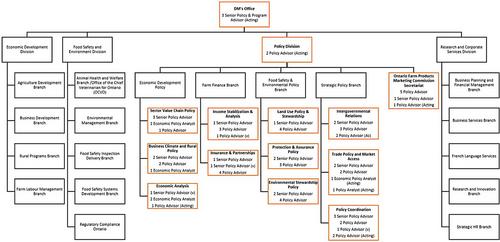Assessing the ‘forgotten fundamental’ in policy advisory systems research: Policy shops and the role(s) of core policy professionals
Abstract
During the past 30 years, research on policy analytical capacity's multidimensional nature and the evolution of policy advisory systems (PASs) has both increased knowledge of these processes and structures and opened new avenues of inquiry. While it is clear that changes in PASs in many countries have occurred - featuring processes such as the increased externalisation and politicisation of policy advice - studies of changes among the roles played by core policy professionals in advice provision have lagged. One aspect of this question concerns the nature and extent of changes in this ‘forgotten fundamental’ of advice systems related to how these professionals are arrayed within ‘policy shops’—that is organisational units identified in the 1960s and 1970s as the main organisational home of policy professionals in government. Whether or not such shops have changed from the central-integrated model identified in early studies and, if so, how, remain outstanding and foundational questions. Recent research in Canada has mapped the distribution of policy professionals at the central and provincial level and found more types of analysts and venues than in earlier eras— which range from the ‘classical’ integrated policy shops of the 1960s and 1970s which remain in central agencies and single-purpose line departments to the much more 'distributed' patterns found in many departments dealing with multiple or complex controversial issues. Using Canadian data, this study outlines the development of these organisational types and their distribution in government and discusses the implications of these changes for better understanding the work, and needs, of core professionals in policy advice systems. .
Points for practitioners
-
‘Policy professionals’ or public employees specifically tasked with policy analysis in government are key players in policy advisory systems despite the addition of more external and internal actors in policy advice systems in recent years.
-
How these advisors and analysts are organised in government, whether they work in clusters or small groups, and how they interact with other civil servants and policy-makers are a key determinant of their activities and influence in policy-making.
-
In the policy sciences, work in the 1960s and 1970s established ‘the policy shop’, that is relatively small centrally located organisational units employing mainly policy analysts, as the main home of policy professionals in government. These units often enjoyed a monopoly in analysis and played a key role in policy-making. However, research on these organisations has not kept up with changes in advisory relations within and outside of governments and the impact such changes have had on the influence and activities of core professionals.
-
Recent work by the authors looking at the large Canadian province of Ontario has identified more than a single type of arrangement of analysts in the current era. This paper expands this analysis to both small and large jurisdictions in Canada, including the federal government, and develops two detailed case studies of the current organisation of policy professionals in smaller central agencies like Ministries of Justice as well as in larger omnibus Ministries of the Environment.
-
The study finds a ‘distributed’ model of policy shops—in which multiple policy units exist throughout the agency—to be dominant in both cases and in all the governments examined and suggests this is now the new normal, replacing the dominance of the older more integrated central shop model. The predominance of the distributed model contributes to the fragmentation of policy advice already underway in government due to the growth in the number of external advisors such as consultants and think tanks, and internal ones such as political staffers.


 求助内容:
求助内容: 应助结果提醒方式:
应助结果提醒方式:


